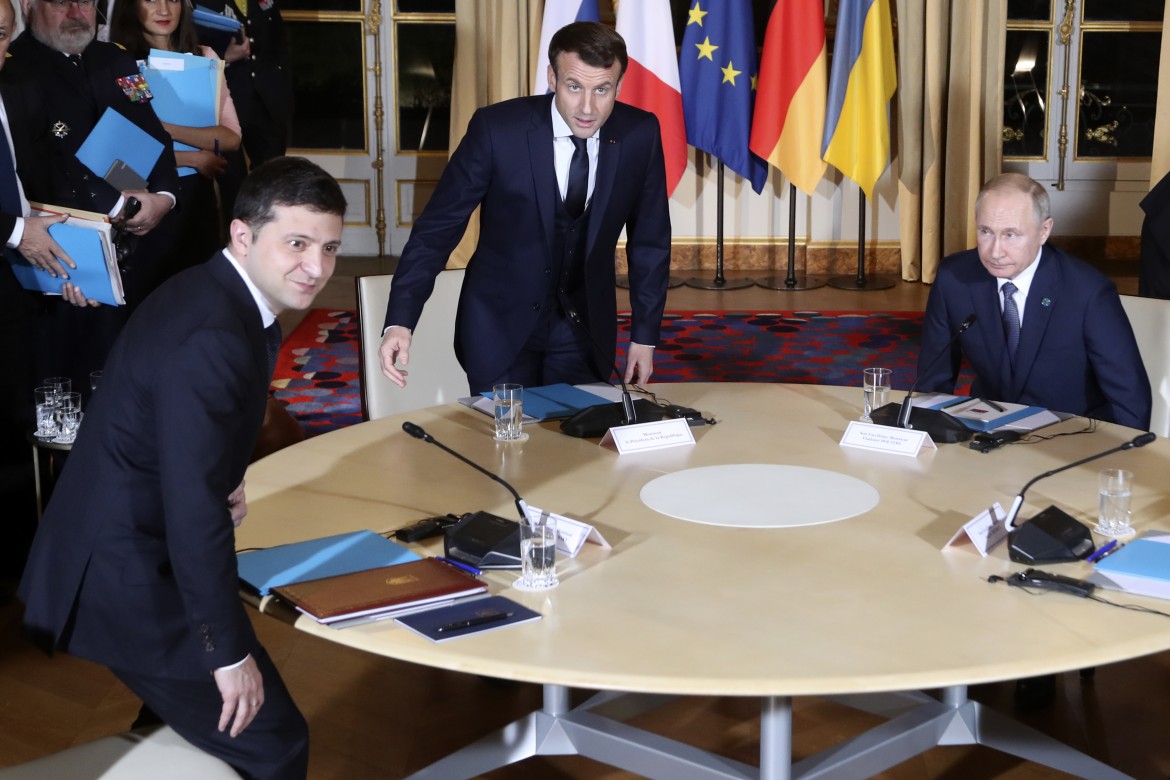Analysis
War in Ukraine would revitalize NATO and give the US a hand in Europe
For part of the Western political establishment, the best result is a Russian military maneuver in Ukraine. The maneuver, however, must be provoked.

In a single day, the United States, U.K. and Australia decided to bring back home the families of their diplomats stationed in Kiev; NATO decided to send more weapons and more men to Eastern Europe; and the Ukrainian president, Volodymyr Zelensky, explicitly said for the first time that he was ready for “aggressive actions.”
All this without Russia moving a single element of the complicated political and military mechanism on which the envoys of the White House, the Kremlin and the main European chancelleries have been working for months.
The objective of the mechanism should be to prevent a war that would have disastrous consequences on the economic level, not to mention the humanitarian one. The problem is that it seems it’s being used today to lead to the very scenario that should be averted: an attack by Russia.
Vladimir Putin “has to do something,” said the American president, Joe Biden, talking about what he expects from the current crisis.
In recent months, the possibility of seeing NATO bases on the Ukrainian border has prompted the Russian defense apparatus to move troops to the southern border and to open negotiations on the architecture of European security. Translated, this means reducing the American presence in the wide region around the Black Sea.
The reasons behind this are not just about the process of joining the Atlantic Alliance that Zelensky is pursuing—a process on which, moreover, there is an underground internal struggle, as shown by the arrest of opposition leader Viktor Medvedchuk, the investigation for treason against former president Petro Poroshenko and the recent campaign against another minority politician, Yevheniy Muraev, who, according to the usual anonymous intelligence sources, might be chosen to lead a puppet government on behalf of the Russians. Putin’s thinking on security concerns not just Ukraine, but the American bases in Bulgaria and Romania.
The Foreign Minister, Sergei Lavrov, in the Geneva summit with his American counterpart, Anthony Blinken, asked that these bases be closed down. The response came sooner than expected. According to the New York Times, the Biden Administration plans to deploy a contingent of 5,000 troops in the Baltic countries. How this operation is supposed to reassure the Ukrainians in the face of a Russian invasion is unknown.
Just as it is unknown what are the concrete plans of the United States and the European Union to support the Ukrainian population in case of an open war. Biden spoke of arming “insurgents,” as if Ukraine were a sort of Afghanistan of Christian Orthodox faith, but denied the possibility of sending armed forces on the ground.
Europe does not even have an army. For the Russians, it would not be complicated to move troops into the rebel republics of Donetsk and Lugansk right now. Last week, in the Duma, the Communist Party, the second largest in the country, asked that these republics be officially recognized. The reason why that hasn’t happened yet is only to keep open the wider negotiations on the Ukrainian issue, negotiations that evidently no one else wants to take responsibility for.
The impression is that for a part of the Western political establishment, the best result of the confrontation involves a Russian military maneuver in Ukraine. This eventuality would allow NATO to pass in a few months from the “brain death” diagnosed by French President Macron to a new season of primacy in Europe.
That maneuver, however, must be provoked. The Kremlin has never denied the possibility of a military intervention on the basis of “legitimate interests.” Is it really willing to do so? Opening a war in Ukraine would have high costs, first of all on the internal order.
But giving up on protecting national security would also bring costs. Putin knows this. His interlocutors abroad know it. For Russia, this crisis carries the same risks that the arms race had on the fate of the Soviet Union.
Originally published at https://ilmanifesto.it/usa-russia-una-rivitalizzazione-atlantica-con-la-guerra/ on 2022-01-25
